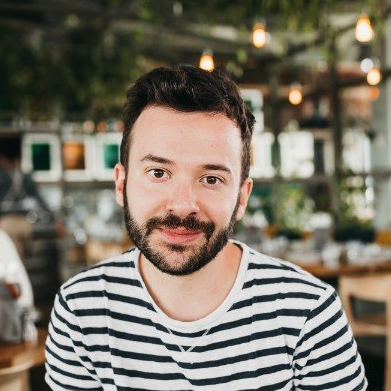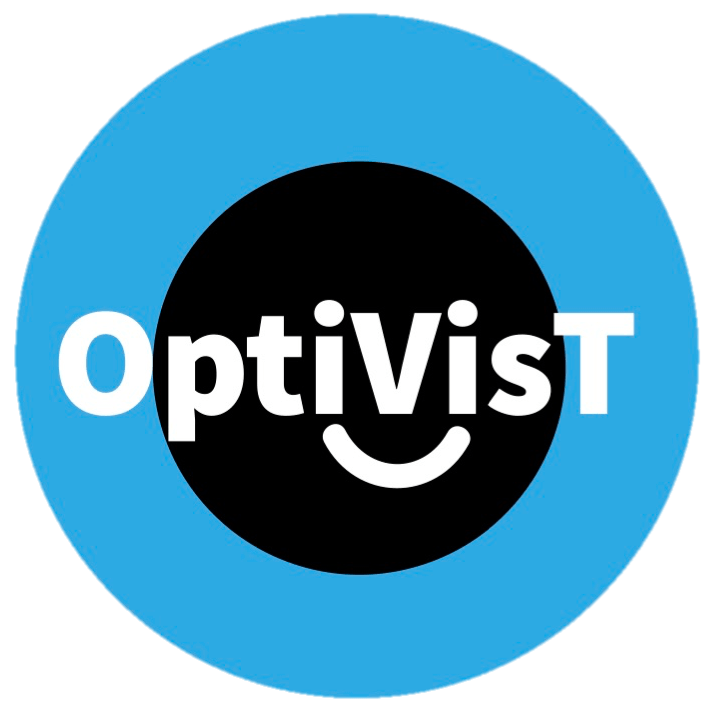ANDREA GHIANI

Gaze-based evaluation of functional vision in activity of daily life
Update Nov. 2024
In October 2021, I joined the OptiVisT network as a PhD student supervised by Eli Brenner within the Sensorimotor Control group in the Department of Behavioural and Movement Sciences of the Vrije Universiteit Amsterdam.
Personal Background and Interest:
I have completed a Bachelor in Psychobiology and a Master in Neuroscience and Neuropsychological Rehabilitation at the University of Padova, Italy. Since my first traineeships, I have been exploring several aspects of visual perception. My current research interest is on how vision works within more realistic scenarios, including a more complex visual stimulation and the possibility of action upon the environment.
Aim of the project:
The aim of this project is to explore gaze behavior during activities of daily life (ADL), where multiple tasks are often performed simultaneously and the most relevant information to execute a task may not always be clear. Employing the state-of-the-art eye tracking technology, we will develop methods to characterize where people normally look under natural circumstances for several tasks. We will then use this knowledge to investigate the relationship between visual disorders and gaze when performing such daily activities. We will focus on possible differences between healthy and clinical populations as well as possible compensatory strategies that people with visual impairments use to adjust their gaze.
Current activities:
We used eye tracking as a tool to describe gaze during ADL. We chose stair climbing as ADL because it is a good representative of a task in which gaze is not dictated by the task but clearly could be important. We developed ways to characterise gaze in this task, and discovered some issues that need to be considered when interpreting data from this task. In particular, we found how the precise instructions might influence performance, so this will have to be considered when interpreting the data of people with visual deficiencies, as well as when interpreting the influence of other factors. We stressed the importance of collecting data in a setting that is as close as possible to the one usually met during daily life, focusing not only on the ecology of the environment (e.g., lab vs. familiar setting), but also on task instructions and the experimenter presence. We focused on differences across people, providing evidence that the way we move our gaze is not only dictated by the task alone, but individual tendencies can play an important role especially when central visual guidance is not strictly necessary. This will need to be taken into consideration when investigating new rehabilitative protocols, suggesting that one should also aim at considering the specific person rather than teaching one strategy thought to be optimal independently of the person. This is supported by our study showing that even blind people differ in the way they navigate staircases with their white cane, despite being usually taught exactly the same strategy.
Future directions:
Future directions can focus on investigating different compensatory strategies people with visual impairment (e.g., hemianopia) may employ during ADL. Also, qualitative research can be conducted to get a more general overview of the different changes in the experience of people with visual deficits beyond performing ADL (e.g., social life, self-perception after the development of the visual deficit, individual differences in coping with the visual deficit).
My OptiVisT experience:
I had big expectations for this PhD, but I could not have imagined to have such a great experience!. Not only it allowed me to grow as a researcher, but it also helped me develop my ability to communicate and work together in a team. Working with people coming from different backgrounds was very useful to get a better perspective into my research. But the most valuable thing in my experience was to share it with the wonderful people I got the chance to meet.
Project output
I have presented my work at several international conferences, amongst which the European Conference on Vision Perception (2022, Nijmegen), Vision Sciences Society (2023, Florida), and European Conference on Eye Movements (2022, Leicester).
The above described project results are presented in the following publications:
- Ghiani, A., Van Hout, L. R., Driessen, J.G., and Brenner, E. Where do people look when walking up and down familiar staircases? Journal of Vision, January 2023, Vol. 23, 7. DOI: https://doi.org/10.1167/jov.23.1.7
- Ghiani, A., Mann, D., & Brenner, E. Methods matter: Exploring how expectations influence common actions. iScience, March 2024, Vol. 27, Issue 3. https://doi.org/10.1016/j.isci.2024.109076
- Ghiani, A., Amelink, D., Brenner, D., Hooge, I.T.C & Hessels, R.S. When knowing the activity is not enough to predict gaze. Journal of Vision 2024;24(7):6. https://doi.org/10.1167/jov.24.7.6.
- Nieboer, W., Ghiani, A., de Vries, R., Brenner, E., & Mann, D.L. Eye Tracking to Assess the Functional Consequences of Vision Impairment: A Systematic Review. Optometry and Vision Science, December 2023, 100(12). https://doi.org/10.1097/OPX.0000000000002088
Contact
Interested in my work and want to get in touch? Send me an e-mail to
a.ghiani@unipd.it.

